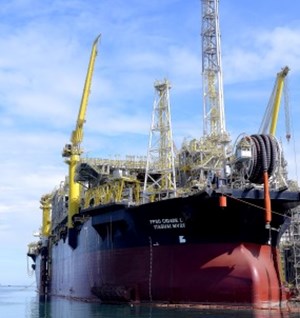Petrobras recruits Chinese banks to finance deepwater oil expansion with world’s largest FPSO fleet
(Bloomberg) – Petrobras is recruiting Chinese banks to finance its deepwater oil expansion in a sign of growing ties between Brazil’s state-controlled oil company and the world’s second-biggest economy.
Rio de Janeiro-based Petrobras recently met with Chinese financial institutions to get loans for itself, as well as for its equipment and services suppliers, Chief Financial Officer Sergio Caetano Leite said in an interview. The idea is to make sure there’s enough affordable capital available for deepwater oil projects in Brazil’s South Atlantic, he said.
Petrobras’s outreach comes as President Luiz Inacio Lula da Silva pursues Chinese investment to deliver on his ambitious plans to reindustrialize Brazil’s economy. China is Brazil’s largest trading partner and buys nearly a third of all its exports.
“Petrobras has been growing at a fast pace and wants to ensure that its suppliers can keep up with this growth,” Leite said in an interview at Petrobras’s headquarters.
Many of the floating, production, storage and offloading (FPSO) vessels that Petrobras buys or leases are assembled at Chinese shipyards. This makes it easier for FPSO builders to get Chinese loans for the vessels, which can cost as much as $3.5 billion each. Chinese banks will also help Petrobras finance renewable energy projects, Leite said.
Chinese financial institutions already account for more than 25% of Petrobras’s loans, and Leite sees this share rising even though the company will keep total liabilities below $65 billion. Petrobras signed five-year term agreements with China Development Bank and the Bank of China during a business trip to the country last month.
Management met with other financial institutions including Sinosure, CITIC Bank, ICBC, and Chinese sovereign funds. Petrobras is studying opening a Chinese subsidiary next year to focus on finance and procurement, he said.
Petrobras has the biggest and fastest-growing FPSO fleet on the planet. It will add 14 more by the end of 2027, and if its suppliers have better access to credit, it will lower overall costs, Leite said.
Petroleo Brasileiro SA, as it is formally known, is also working to get closer to Middle Eastern countries. After the trip to China last month, officials stopped in Abu Dhabi for meetings with companies including Adnoc and Mubadala Capital. The company also plans a visit to Saudi Arabia soon, Leite said.
Leite sees Gulf countries as significant players in the energy transition and are willing to spend heavily on decarbonizing the economy. Petrobras itself is planning to earmark up to 15% of its total investments toward renewable energy projects and is looking for partners to share investment costs.
“It’s the financial sector and the oil and gas industry that will finance the energy transition,” Leite said.



